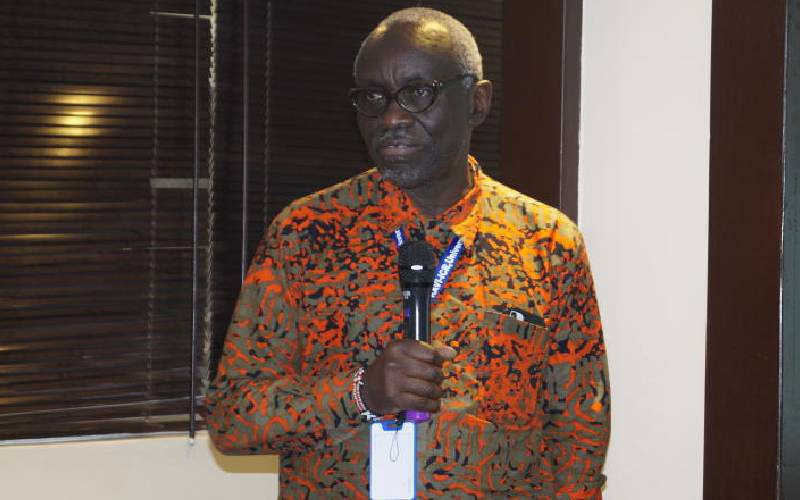
Basic Education PS Julius Bitok receives eight classrooms and three ablution blocks at the Kwa Njenga Primary School in Nairobi from the US ambassador Marc Dillard on April 2, 2025. The Sh83.9 million project was done by the US Department of Defence. [Jenipher Wachie]
The government has announced plans to appeal the High Court ruling that declared as illegal, payment of school fees through the eCitizen platform.
Basic Education Principal Secretary Julius Bitok acknowledged the ruling by Justice Chacha Mwita but confirmed that the Ministry of Education, in collaboration with the Attorney General’s office, will appeal the decision.
“We will obey the court ruling, but we are going to appeal because eCitizen is a highly transparent platform. The government’s intention was to ensure all payments by parents and stakeholders are clear and accountable,” he said.
On Tuesday, the government suffered a setback when the High Court ruled that the directive was unconstitutional.
This decision came as a relief to parents who traditionally paid fees in kind, such as sacks of maize, beans, or firewood, but were locked out by the digital payment system.
The National Parents Association opposed the eCitizen mandate, arguing that many parents who struggle to raise cash for fees rely on payments in kind.
They warned that the digital-only system would disadvantage them.
Bitok defended the eCitizen directive, stating that it was introduced to protect parents and guardians from exploitation by school administrators and to enhance transparency in school financial management.
Bitok made the remarks at Kwa Njenga Primary School in Nairobi, where he officially received eight new classrooms and three ablution blocks built by the United States Department of Defence.
U.S. Ambassador Marc Dillard handed over the Sh84 million project, which also includes a perimeter fence and improved grading and drainage systems at the school.
The institution serves 2,228 pupils from the surrounding informal settlements.
The PS emphasized that the eCitizen payment system aimed to curb the long-standing problem of some school heads and management boards arbitrarily increasing fees beyond the government’s recommended rates.
“We have faced this issue for a long time. The government sets fees, but some stakeholders unilaterally increase them without consultation. Our goal is to make fee payments open and transparent for everyone to see,” Bitok stated.
On Wednesday, some education stakeholders welcomed the court ruling.
National Parents Association chairman Silas Obuhatsa described the eCitizen directive as well-intentioned but criticized the Ministry of Education for failing to engage the public before its implementation.
Obuhatsa also faulted the rigid nature of the platform, which he said did not accommodate parents who pay fees in kind.
“Many parents, especially in rural areas, can only afford to pay fees by providing a bag of maize, a goat, or a cow to schools. These are commodities that cannot be processed through the eCitizen platform. The government should have considered stakeholder input before rolling out the system,” he said.
The Kenya Union of Post Primary Education Teachers (KUPPET) echoed Obuhatsa’s concerns, warning that enforcing exclusive online fee payments could lead to a decline in secondary school enrollment.
“The use of foodstuffs to pay fees cannot be accommodated online. This could result in up to a third of secondary school students being locked out of school,” said KUPPET’s acting secretary general, Moses Nthurima.
Kenya National Union of Teachers (KNUT) Secretary General Collins Oyuu also termed the directive punitive.
Oyuu suggested a hybrid payment model that accommodates both parents who can pay digitally and those who rely on alternative means.
“The system should cater to all parents, including those with financial limitations. A hybrid model would ensure inclusivity,” he said.
 The Standard Group Plc is a multi-media organization with investments in media platforms spanning newspaper print
operations, television, radio broadcasting, digital and online services. The Standard Group is recognized as a
leading multi-media house in Kenya with a key influence in matters of national and international interest.
The Standard Group Plc is a multi-media organization with investments in media platforms spanning newspaper print
operations, television, radio broadcasting, digital and online services. The Standard Group is recognized as a
leading multi-media house in Kenya with a key influence in matters of national and international interest.











